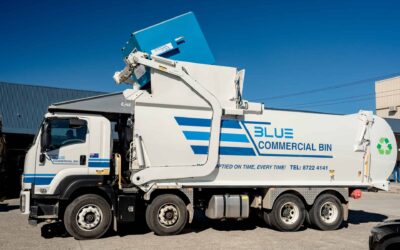Quick answer
Batteries must not be placed in our general‑waste or cardboard bins. They can ignite, explode, or leak hazardous chemicals, creating serious risks for your site and our drivers.
Why batteries are dangerous in bins
- Fire and explosion risk: Damaged or crushed batteries—especially lithium‑ion—can short‑circuit and ignite inside bins, compactors or trucks.
- Chemical hazards: Battery contents are corrosive and harmful to people and the environment.
Equipment damage & downtime: Fires cause costly damage to bins, trucks and loading docks, and may halt your operations. - Regulatory risk: Incorrect disposal may lead to fees, penalties or site non‑compliance.
What counts as a “battery” here?
- Loose batteries: AA/AAA, 9V, coin cells, rechargeable packs, lead‑acid.
- Embedded batteries: Found in phones, laptops, tablets, cordless tools, vapes/e‑cigarettes, e‑bikes/scooters, portable scanners, UPS packs and more. If it charges, it likely contains a battery.
Common items with “hidden” batteries
- IT devices: phones, laptops, tablets, power banks
- Workplace gear: cordless drills, scanners, barcode guns, two‑way radios
- Facilities items: emergency lights, security sensors, exit‑sign backups
- Personal items at work: vapes, headphones/earbuds, smartwatches
What to do instead (safe disposal options)
- Use your local Council Community Recycling Centre or approved battery drop‑off point.
- For bulk or recurring volumes, arrange a specialist battery recycling service through your HSEQ team or procurement.
- Keep a clearly labelled battery collection container on site (away from heat and metal objects) and train staff on what belongs in it.
How to prepare batteries for drop‑off
- Tape terminals (especially 9V/lithium cells) with non‑conductive tape to prevent short circuits.
- Store in a non‑metal container, away from heat sources.
- Do not crush, pierce or disassemble batteries or battery‑powered devices.
- If a device is bloated, hot, or smells sweet/solvent‑like, isolate it in a sand/vermiculite bucket and contact a specialist.
Our policy (summary)
- Batteries and battery‑powered devices are prohibited in our general waste, cardboard and front‑lift/hook bins.
- Sites must segregate these items and arrange an appropriate battery collection/recycling pathway.
FAQs
Q: Can small button cells go in general waste?
A: No. All batteries—large or small—must be kept out of our bins.
Q: We only have a few batteries each month—what’s best?
A: Use your nearest Council Community Recycling Centre or an approved retail drop‑off.
Q: Do you provide battery collection?
A: We focus on commercial general waste, cardboard and (commercial) hook services. We can refer you to specialist providers on request.

